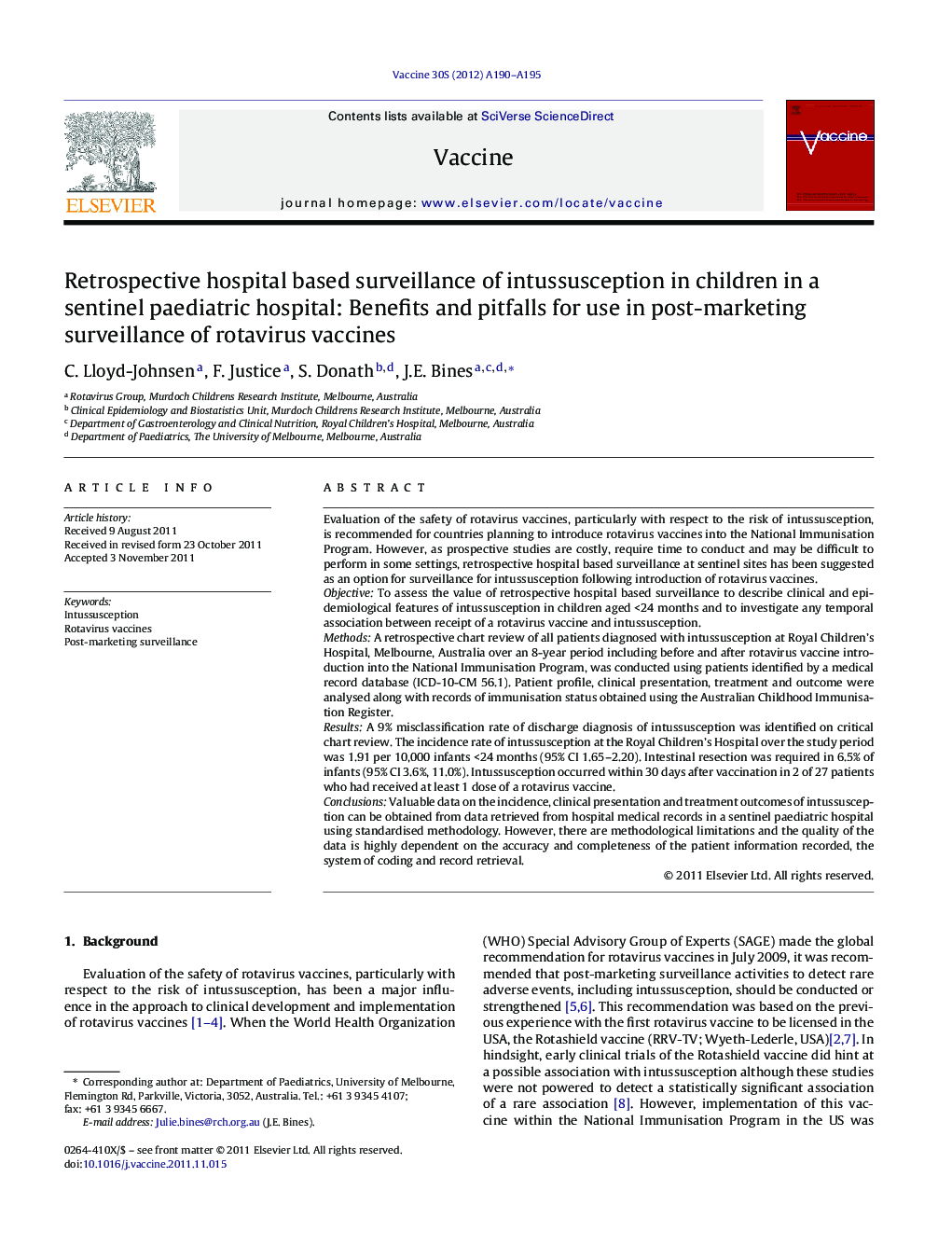| Article ID | Journal | Published Year | Pages | File Type |
|---|---|---|---|---|
| 2403364 | Vaccine | 2012 | 6 Pages |
Evaluation of the safety of rotavirus vaccines, particularly with respect to the risk of intussusception, is recommended for countries planning to introduce rotavirus vaccines into the National Immunisation Program. However, as prospective studies are costly, require time to conduct and may be difficult to perform in some settings, retrospective hospital based surveillance at sentinel sites has been suggested as an option for surveillance for intussusception following introduction of rotavirus vaccines.ObjectiveTo assess the value of retrospective hospital based surveillance to describe clinical and epidemiological features of intussusception in children aged <24 months and to investigate any temporal association between receipt of a rotavirus vaccine and intussusception.MethodsA retrospective chart review of all patients diagnosed with intussusception at Royal Children's Hospital, Melbourne, Australia over an 8-year period including before and after rotavirus vaccine introduction into the National Immunisation Program, was conducted using patients identified by a medical record database (ICD-10-CM 56.1). Patient profile, clinical presentation, treatment and outcome were analysed along with records of immunisation status obtained using the Australian Childhood Immunisation Register.ResultsA 9% misclassification rate of discharge diagnosis of intussusception was identified on critical chart review. The incidence rate of intussusception at the Royal Children's Hospital over the study period was 1.91 per 10,000 infants <24 months (95% CI 1.65–2.20). Intestinal resection was required in 6.5% of infants (95% CI 3.6%, 11.0%). Intussusception occurred within 30 days after vaccination in 2 of 27 patients who had received at least 1 dose of a rotavirus vaccine.ConclusionsValuable data on the incidence, clinical presentation and treatment outcomes of intussusception can be obtained from data retrieved from hospital medical records in a sentinel paediatric hospital using standardised methodology. However, there are methodological limitations and the quality of the data is highly dependent on the accuracy and completeness of the patient information recorded, the system of coding and record retrieval.
► Retrospective hospital-based surveillance can provide valuable clinical data on intussusception.► Need to acknowledge methodological limitations compared to data collected prospectively.► 9% misclassification rate of diagnosis of intussusception identified on critical chart review.► Data quality is dependent on the accuracy and completeness of medical records and coding systems.
